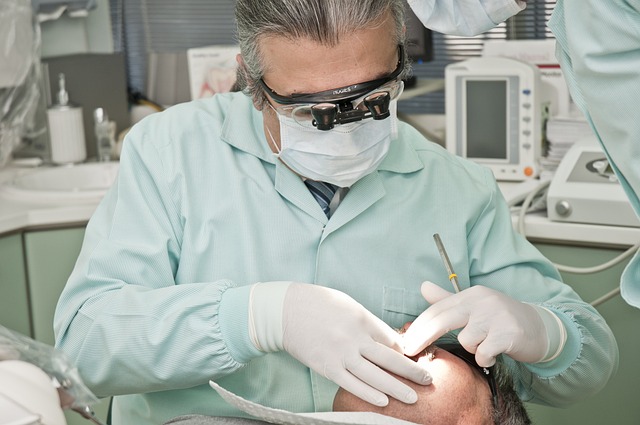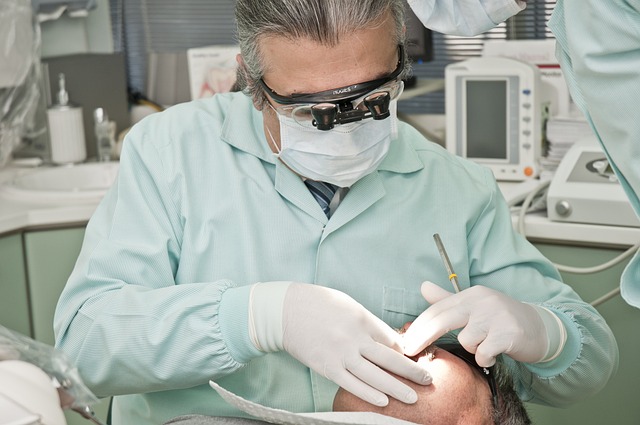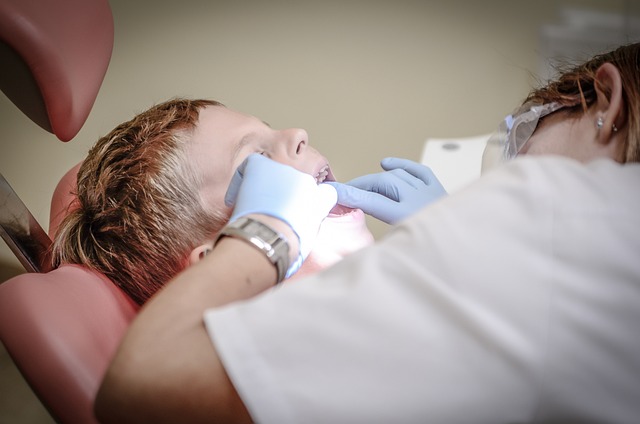Phone:
(701)814-6992
Physical address:
6296 Donnelly Plaza
Ratkeville, Bahamas.


In this article, you will learn some simple and effective ways to soften your dog’s tartar. Taking care of your dog’s teeth is important for their overall health and well-being. By following these tips, you will be able to prevent tartar buildup and promote better dental hygiene for your furry friend.
First, consider incorporating dental chews into your dog’s diet. These chews are designed to help remove plaque and tartar from their teeth, while also freshening their breath. You can easily find a variety of dental chews at your local pet store. Additionally, regular brushing is crucial in maintaining your dog’s dental health. Invest in a dog-friendly toothbrush and toothpaste, specifically formulated for pets, and make it a habit to brush your dog’s teeth at least a few times a week. By doing so, you can help soften and reduce tartar buildup, keeping your dog’s teeth clean and healthy.
Table of Contents
Dog tartar, also known as dental calculus, is a hard, yellowish substance that forms on your dog’s teeth over time. It is a result of the mineralization of plaque, which is a sticky film composed of bacteria, saliva, and food particles. Once plaque hardens and becomes tartar, it cannot be removed by regular brushing and requires special attention to prevent further dental issues. Ignoring tartar buildup can lead to serious oral health problems for your furry friend.
Several factors contribute to the formation of tartar on your dog’s teeth. First and foremost, inadequate dental care plays a significant role. Just like humans, dogs need regular brushing to remove plaque and prevent tartar buildup. Lack of brushing allows plaque to harden and turn into tartar. Poor diet is another leading cause of tartar buildup. Feeding your dog a diet high in carbohydrates and sugars can contribute to the production of plaque, increasing the chances of tartar formation. Additionally, certain breeds and age groups are more prone to tartar buildup, requiring extra attention and care.
Addressing dog tartar buildup is essential for maintaining your pet’s oral health. Tartar can cause various dental issues, including tooth decay, gum disease, and even tooth loss. Moreover, tartar buildup can lead to the development of harmful bacteria, which can enter your dog’s bloodstream and potentially affect their overall health. By addressing tartar buildup, you can prevent these complications and ensure your furry friend enjoys a healthy and pain-free mouth.
Softening dog tartar offers several benefits for both you and your canine companion. By softening tartar, you make it easier to remove during regular brushing. This helps maintain good dental hygiene and prevents the buildup of additional tartar. Furthermore, softening tartar can improve your dog’s chewing ability, as hard tartar can cause discomfort and pain while eating. Lastly, softening dog tartar can help freshen your dog’s breath, making those cuddle sessions all the more enjoyable.


Before you embark on the journey of softening your dog’s tartar, it’s essential to have the right materials on hand. Make sure you have a soft-bristled toothbrush or a dental sponge, a tartar-control toothpaste specifically formulated for dogs, and some dental chews or treats. These materials will aid in the softening and removal of tartar from your dog’s teeth.
In addition to regular brushing, you can create a homemade tartar softening solution to aid in the removal of stubborn tartar. Mix one tablespoon of baking soda with one teaspoon of water to form a paste. Apply the paste to your dog’s teeth using a toothbrush or your finger and gently rub it into the tartar. The baking soda helps breakdown the tartar, making it easier to remove during brushing.
Another effective way to soften dog tartar is by using dental chews and treats. These products are specifically designed to promote good oral health by reducing tartar buildup. Dental chews work by mechanically scraping away tartar as your dog chews on them. Look for chews that have been approved by veterinary professionals and are appropriate for your dog’s size and chewing habits.
If your dog’s tartar buildup is severe or you’re unsure about the best course of action, it’s always a good idea to consult a veterinarian. Professional dental cleaning performed by a vet is the most effective way to remove stubborn tartar. During the cleaning, your vet will use specialized tools to scrape off the tartar from your dog’s teeth. They may also recommend additional treatments or dental care tips specific to your dog’s needs.
Prevention is key when it comes to tartar buildup. One of the best ways to prevent tartar formation is by regularly brushing your dog’s teeth. Use a toothbrush and toothpaste formulated for dogs, and aim for daily brushing if possible. Gently massage the toothpaste onto your dog’s teeth and gums in circular motions to remove plaque and prevent tartar buildup.
In addition to regular brushing, using tartar control products can help prevent future tartar buildup. There are various dental gels, mouthwashes, and sprays available on the market specifically formulated to reduce tartar and promote good oral health. Consult with your veterinarian to determine which products are suitable for your dog and incorporate them into your dental care routine.
Diet plays a significant role in your dog’s oral health. Feeding your furry friend a diet focused on dental health can help prevent tartar buildup. Look for specially formulated dental health dog food that helps control plaque and tartar. These foods are designed to promote chewing and mechanically clean your dog’s teeth while they eat.
Regular dental check-ups are crucial for maintaining your dog’s oral health. Your veterinarian can identify early signs of dental problems and provide appropriate treatment. They can also perform professional cleanings to remove tartar buildup that regular brushing may miss. Regular dental exams should be part of your preventive care routine to keep your dog’s teeth and gums healthy.


It’s essential to be vigilant and recognize the signs of dental issues in your dog. Common symptoms of dental problems include bad breath, red or bleeding gums, difficulty chewing, drooling, loose or broken teeth, swelling around the mouth, and a reluctance to eat. If you notice any of these symptoms, it’s crucial to seek veterinary care promptly to prevent further dental complications.
Regularly inspecting your dog’s teeth and gums is an important part of maintaining their oral health. Take the time to examine your dog’s mouth, looking for signs of tartar buildup, gum inflammation, or any abnormalities. By catching potential issues early, you can take proactive measures to address them and prevent further complications.
Addressing dog tartar contributes to improved oral hygiene, which in turn boosts overall health. By removing tartar, you reduce the risk of tooth decay, gum disease, and potential tooth loss. Healthy teeth and gums also help prevent the entry of harmful bacteria into your dog’s bloodstream, reducing the risk of systemic infections and improving their overall well-being.
Nobody enjoys bad breath, and the same goes for our canine companions. By softening and removing tartar, you can significantly improve your dog’s breath. Tartar buildup harbors bacteria, contributing to foul-smelling breath. By addressing this issue, you can enjoy your furry friend’s company without being overwhelmed by an unpleasant odor.
Ignoring tartar buildup can lead to the development of gum disease, also known as periodontal disease, which can result in tooth loss. By addressing tartar and preventing its buildup, you significantly reduce the risk of gum disease and potential tooth loss. This ensures your dog can maintain their natural teeth, facilitating proper chewing and maintaining a healthy mouth.


Contrary to popular belief, tartar is not harmless. Tartar buildup can lead to various dental issues and can have a significant impact on your dog’s oral health. By addressing tartar and preventing its buildup, you can mitigate the risk of tooth decay, gum disease, and potential tooth loss.
Another common misconception is that dogs don’t require dental care. Just like humans, dogs are susceptible to dental issues and need proper oral hygiene routines. Regular brushing, professional cleanings, and preventive measures are essential to maintain your dog’s dental health and overall well-being.
Taking proactive measures to soften and prevent dog tartar buildup is crucial for maintaining your furry friend’s oral health. By regularly brushing your dog’s teeth, using tartar control products, and feeding a dental health-focused diet, you can prevent tartar formation and reduce the risk of dental issues. Scheduling regular dental check-ups and recognizing the signs of dental problems can help catch potential issues early and provide prompt treatment. By addressing dog tartar, you improve oral hygiene, enhance your dog’s breath, and prevent tooth loss and gum disease. Remember, taking care of your dog’s teeth is an essential part of being a responsible and loving pet owner.